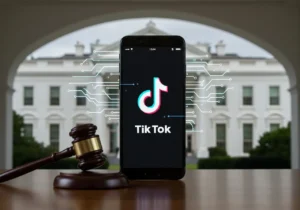In the ever-evolving digital landscape, traditional marketing methods are taking a backseat as new, more personalized strategies gain traction. One of the most effective strategies today is influencer marketing. With the rise of social media platforms and the increasing reliance on digital content, influencers have become key players in shaping consumer behavior and boosting brand visibility. In this blog, we’ll explore the power of influencer marketing, how it works, and why businesses should consider incorporating influencers into their marketing strategies.
What is Influencer Marketing?
Influencer marketing is a form of social media marketing that leverages individuals with a large and engaged following to promote products, services, or brands. These individuals, known as influencers, have the power to influence the purchasing decisions of their audience. They are typically experts, thought leaders, or celebrities within specific niches who have gained credibility and trust with their followers.
Influencers can range from micro-influencers (with a smaller but highly engaged audience) to mega-influencers or celebrities with millions of followers. No matter the size of their following, influencers play an important role in connecting brands with potential customers.
Why Influencer Marketing is So Powerful
-
Authenticity and Trust
One of the most significant reasons influencer marketing is so effective is the authenticity it brings to brand promotions. Unlike traditional advertisements that can feel forced or inauthentic, influencers have built trust with their audiences. When an influencer endorses a product or service, it’s often seen as a genuine recommendation. Their followers trust their opinions and advice, which makes them more likely to consider purchasing a product that the influencer promotes.
According to a survey by the Digital Marketing Institute, 49% of consumers say they depend on influencer recommendations for their purchasing decisions. This level of trust is something that traditional advertising struggles to replicate.
-
Targeted Reach
Influencer marketing allows businesses to target specific demographics with precision. Influencers typically have a niche focus, whether it’s beauty, fitness, travel, or technology, allowing brands to tailor their messaging to an audience that is already interested in their industry or product. This ensures that marketing efforts are not wasted on irrelevant audiences and helps brands achieve a higher return on investment (ROI).
-
Increased Engagement
Influencers have highly engaged audiences that interact with their content through likes, shares, comments, and direct messages. This level of engagement is something that traditional advertising often lacks. When influencers post about a brand, they often spark conversations and interactions among their followers, which increases brand visibility and awareness. The higher the engagement, the more organic reach a campaign can generate.
-
Content Creation
Influencers are content creators by nature, and their creative abilities can help businesses produce fresh, high-quality content. Influencers often produce videos, images, and blog posts that resonate with their audience. By partnering with influencers, brands can tap into their content creation skills to generate promotional content that feels natural and appealing, making it more likely to be shared by their followers.
-
Cost-Effectiveness
Compared to traditional advertising methods such as TV ads, influencer marketing can be significantly more cost-effective. While some influencers charge high fees for sponsored posts, micro-influencers (who have smaller but more dedicated followings) are often willing to collaborate for much less, offering businesses the opportunity to work with influencers even with a modest budget. This makes influencer marketing accessible to brands of all sizes, from startups to established corporations.
How to Leverage Influencer Marketing for Your Brand
-
Identify the Right Influencers
The first step in any influencer marketing campaign is to identify the right influencers to collaborate with. Choose influencers who align with your brand values, target audience, and industry. For example, if you’re a fitness brand, you’d want to partner with fitness influencers who are passionate about health and wellness.
It’s important to assess the influencer’s engagement rate and the authenticity of their followers. A large number of followers doesn’t always translate into high engagement, so prioritize influencers who have an active, loyal following.
-
Set Clear Goals
Like any marketing campaign, influencer marketing requires clear objectives. Are you looking to increase brand awareness, drive sales, or promote a specific product? Defining your goals from the outset will help you choose the right influencers and measure the success of your campaign.
You can set specific KPIs (key performance indicators) like the number of impressions, engagement rates, or website traffic generated from the influencer’s posts.
-
Create a Collaborative Campaign
The best influencer campaigns are collaborative. Rather than simply telling influencers what to post, allow them to create content that feels authentic and fits within their style. Influencers know their audience best and should have the creative freedom to showcase your product in a way that resonates with their followers.
For example, if you’re promoting a fashion brand, let influencers style the clothing in a way that fits their personal brand, rather than just providing them with a script to follow.
-
Monitor and Measure Success
As your influencer marketing campaign progresses, it’s essential to track and analyze its performance. This can include monitoring metrics such as website traffic, social media engagement, sales conversions, and brand mentions. Many influencers provide detailed reports on the performance of their posts, allowing you to measure the ROI of your campaign.
Conclusion
Influencer marketing is a powerful tool in the digital age, offering brands the opportunity to connect with highly engaged audiences and create authentic, impactful content. By choosing the right influencers, setting clear goals, and fostering a collaborative approach, businesses can harness the power of influencer marketing to boost brand awareness, drive sales, and build long-term customer loyalty.
As digital marketing continues to evolve, influencer marketing is poised to remain one of the most effective strategies for brands looking to stay relevant and connect with consumers on a personal level.





